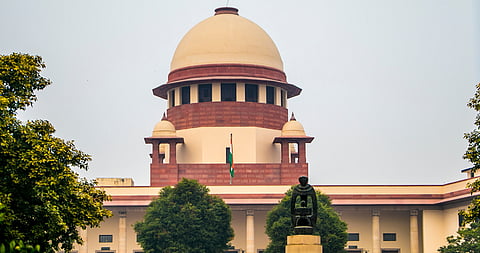

In a major ruling impacting judiciary aspirants, the Supreme Court today, Tuesday, May 20, reinstated the requirement that candidates must have at least three years of advocacy experience to be eligible for entry-level posts in the judicial service, as reported by LiveLaw.in.
However, this rule will apply only to future recruitment processes and not to those already initiated by High Courts.
The bench comprising Chief Justice of India BR Gavai, Justice AG Masih and Justice K Vinod Chandran delivered the verdict in the All India Judges Association case.
“The said requirement of minimum years of practice shall not be applicable where the concerned High Court has already initiated the selection process for the post of civil judge and shall be applicable for the next recruitment process,” the court clarified.
It also directed all high courts and state governments to amend their service rules accordingly.
“All High Courts and State Governments shall amend the service rules to the effect that candidates desirous of appearing in Civil Judge (Junior Division) must have a practice of a minimum period of 3 years to be eligible for said examination,” the bench added.
Importantly, the court allowed the three-year practice period to include experience as a law clerk.
“We further direct that the experience of the candidate which they have gained working as law clerks with any of the judges or judicial officers of the country will also be considered while calculating the total number of years of practice,” the bench said.
To prove the required experience, candidates must submit a certificate verified either by a Principal Judicial Officer or an advocate with at least 10 years of standing, depending on their place of practice.
Why this change?
The court emphasised that recruiting fresh law graduates directly into the judiciary has led to systemic issues, added LiveLaw.in.
“For the last 20 years, during which the recruitment of fresh law graduates have been appointed as judicial officers without a single day of practice at the bar has not been a successful experience… Neither knowledge based on law books nor pre-service training could be an adequate substitute to the first-hand experience of the working of the court system and administration of justice,” the judgment read.
Concerns had also been raised during the hearings about candidates gaining nominal experience by simply signing vakalaths without active court practice. The bench acknowledged this possibility but held that some form of prior exposure to courtroom functioning remains necessary.
The court’s decision reverses its own 2002 verdict, which had accepted the Shetty Commission’s recommendation to allow fresh law graduates to enter judicial service, citing concerns that three years of practice deterred top talent.
In the latest case, most high courts and state governments supported restoring the experience requirement, calling the entry of fresh graduates “counter-productive.” Only the high courts of Sikkim and Chhattisgarh opposed reintroducing the minimum practice clause.
The court had earlier reserved judgment on January 28, 2025, and had also stayed a recruitment process initiated by the Gujarat High Court that did not include the three-year clause.
